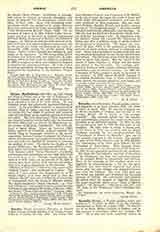

Cormac MacCuilenan (836-908), an Irish bishop and King of Cashel, was of the race of Eoghanact, of Southern Ireland, and in his early years received a good education in one of the Irish schools. He was ordained priest, and afterwards appointed Bishop of Cashel. In the year 900 he became, on account of his descent, King of Cashel, and thus were combined in his person the two offices of spiritual and temporal ruler of Leth Moga, as the southern portion of Ireland was called. The ardri (high king), Flann, assisted by the King of Leinster, led his forces into the Southern Province (906), and was met by the Munstermen under Cormac at Moylena (Tullamore). The ardri suffered a signal defeat. Later on, however (908) Flann, assisted by Ceorbhall, King of Leinster, and Cathal, King of Connaught, returned to the attack, apparently because Cormac, instigated by Flaherty, Abbot of Inniscathay, had claimed tribute from Leinster, and had even signified his intention of assuming the position of ardri. The battle was fought at the present Ballymoon; the Munstermen suffered a complete defeat and Cormac was killed in the battle. An Irish Glossary called “Sanas Chormaic”, containing etymologies and explanations of over 1400 Irish words has come down to us. Though, etymologically, the work is of little value, yet on account of the light it throws upon many ancient Irish customs and institutions it is of great importance to the historian. The “Glossary of Cormac” is said to be only a part of the “Saltair Chaisil”, also attributed to Cormac. This work, if it ever existed, has disappeared, or, as W. Stokes thinks, it is more likely that at best the “Saltair Chaisil” was only a collection of transcripts of manuscripts from the hands of different writers. The above-mentioned “Sanas Chormaic”, or “Cormac’s Glossary”, was translated and annotated by John O’Donovan and edited by W. Stokes (Calcutta, 1868). See Stokes, “Three Irish Glossaries” (London, 1862).
JAMES MACCAFFREY

